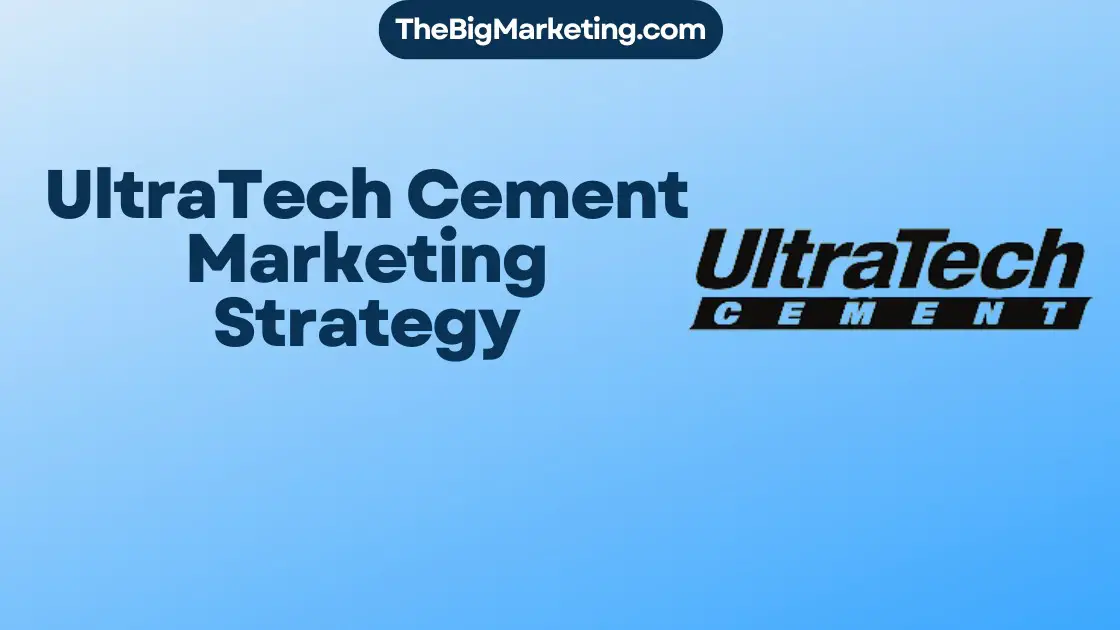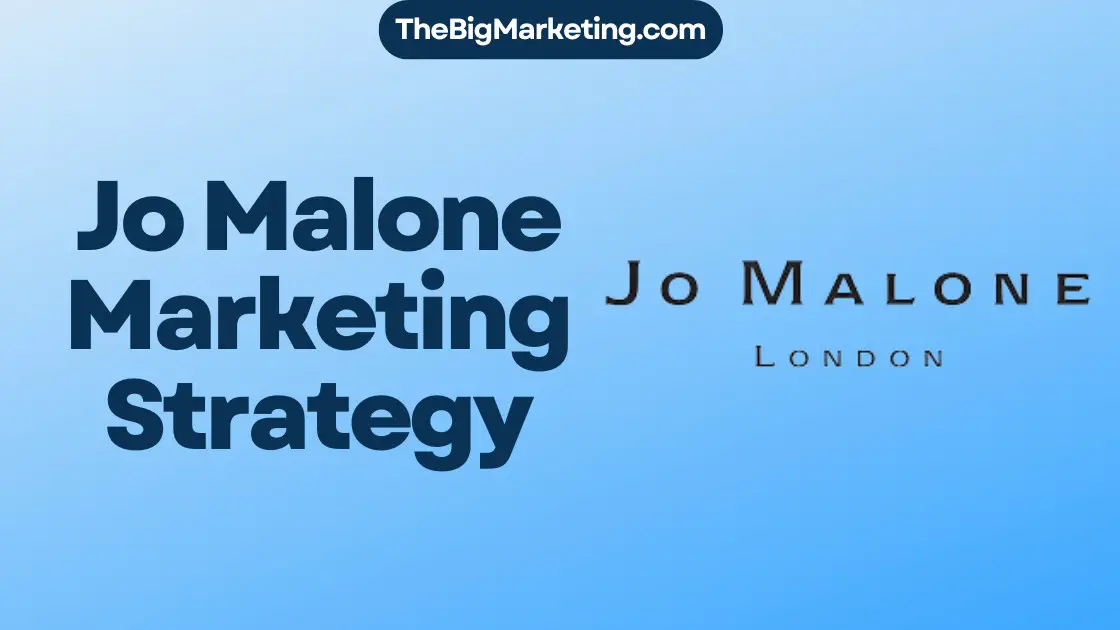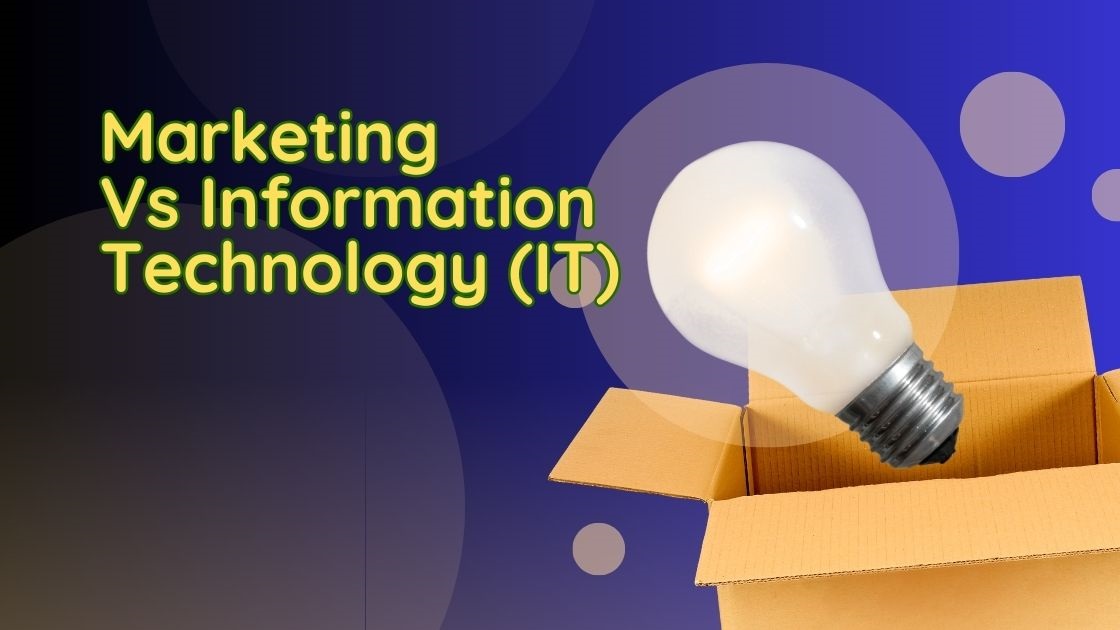Richemont, a leading luxury goods company, has developed a comprehensive marketing strategy for 2024. This case study delves into the various tactics employed by Richemont to dominate the market and engage consumers. The focus is on the company’s digital marketing plan and how it aligns with changing consumer behavior.
Key Takeaways:
- Richemont’s marketing strategy for 2024 encompasses a digital marketing plan that is aligned with changing consumer behavior.
- The company conducted thorough market research and analysis to identify competitors and develop unique brand positioning strategies.
- Richemont leveraged an omnichannel marketing approach, integrating online and offline channels to provide a seamless brand experience.
- The company utilized various digital marketing channels, including social media, influencer collaborations, email marketing, and search engine optimization.
- Richemont implemented initiatives to build brand loyalty through loyalty programs, exclusive events, personalized offers, and exceptional customer service.
Understanding Consumer Behavior in the Luxury Market
When it comes to creating an effective marketing strategy, understanding consumer behavior is essential, especially in the competitive luxury market. Richemont, a leading luxury goods company, recognized the importance of consumer behavior analysis in shaping their marketing efforts. By delving into the trends, preferences, and purchase patterns of their target customers, Richemont gained valuable insights that allowed them to tailor their marketing to resonate with their audience on a deeper level.
Consumer behavior analysis involves studying the motivations and desires of luxury consumers. By identifying what drives their purchasing decisions and understanding their aspirations, Richemont was able to craft compelling marketing messages and experiences that aligned with their customers’ needs and aspirations.
One key aspect of consumer behavior analysis for Richemont was studying the trends in the luxury market. By staying up-to-date with the latest fashion trends, lifestyle choices, and cultural shifts, the company positioned themselves as a brand that understands and adapts to their customers’ changing preferences.
Purchase patterns were also crucial in understanding consumer behavior. Richemont analyzed how their target customers interacted with their brand, whether it be in-store, online, or through various touchpoints. By gaining insights into the customer journey, Richemont was able to optimize their marketing channels and create a seamless experience for their customers.
Consumer Preferences and Luxury Brand Marketing
Consumer preferences play a significant role in luxury brand marketing. Understanding what appeals to luxury consumers allows brands to create targeted marketing campaigns that speak directly to their audience. Richemont conducted thorough research and analysis into consumer preferences, enabling them to tailor their product offerings and marketing messages accordingly.
For example, Richemont found that their target customers valued exclusivity and craftsmanship. With this knowledge, they emphasized the uniqueness and artistry of their products in their marketing materials, appealing to their customers’ desire for luxury items that stand out from the mainstream.
Consumer behavior analysis also revealed the importance of brand reputation and trust in the luxury market. Richemont understood that their customers valued authenticity and heritage, and they leveraged these elements in their marketing campaigns. By highlighting their brand story and showcasing their rich history, Richemont was able to establish a strong emotional connection with their customers.
In summary, consumer behavior analysis is a critical component of luxury brand marketing. By understanding the motivations, desires, and preferences of their target audience, brands like Richemont can create tailored marketing strategies that resonate with their customers and drive success in the competitive luxury market.
Competitive Market Research and Analysis
Richemont engaged in extensive competitive market research and analysis to gain insight into their competitors and evaluate their positioning strategies. This research was crucial for Richemont to understand the competitive landscape and differentiate themselves from their rivals, ultimately developing unique brand positioning strategies that set them apart.
By thoroughly examining their competitors’ market presence, product offerings, pricing strategies, and target audience, Richemont was able to identify gaps and opportunities within the market. This enabled them to position their luxury brand effectively to attract a specific segment of consumers who were seeking a unique and differentiated experience.
Through meticulous analysis of market trends, consumer preferences, and competitor performance, Richemont was able to make data-driven decisions regarding their brand positioning. By leveraging this valuable information, they crafted a brand identity that resonated with their target audience, aligning their products and marketing messages to meet the desires and aspirations of luxury consumers.
Key Competitors in Richemont’s Market
| Brand | Segment Focus | Positioning Strategies |
|---|---|---|
| LVMH | Luxury goods conglomerate | Diversified portfolio and aspirational positioning |
| Swatch Group | Watch and jewelry manufacturer | Wide range of brands catering to various consumer segments |
| Kering | Luxury goods conglomerate | Focus on sustainability and craftsmanship |
| Tiffany & Co. | Jewelry retailer | Symbol of love and timeless elegance |
The table above provides an overview of some key competitors in Richemont’s market, highlighting their segment focus and main positioning strategies. This analysis allowed Richemont to understand their peers’ strengths and weaknesses and adjust their own brand positioning accordingly, ensuring they differentiated themselves effectively in the competitive landscape.
By leveraging competitive market research and analysis, Richemont successfully identified their competitors, assessed their positioning strategies, and forged a unique brand identity that distinguished them from other luxury brands. This research-driven approach ensured that Richemont’s brand positioning strategies aligned with consumer demands and preferences, ultimately helping them secure a prominent position in the competitive luxury market.
The Shift to an Omnichannel Marketing Approach
As part of its marketing strategy, Richemont, a prominent luxury goods company, has embraced the power of an omnichannel marketing approach. Recognizing the importance of providing a seamless experience for its customers, Richemont has integrated its online and offline channels to deliver a cohesive brand experience.
By leveraging technology and data, Richemont has been able to personalize its messaging and engage consumers across multiple touchpoints. This comprehensive approach ensures that customers can interact with the brand through various mediums such as websites, social media, physical stores, and mobile apps.
Implementing an omnichannel marketing approach allows Richemont to reach its target audience wherever they are, creating a consistent and immersive brand experience. Whether customers are browsing online or visiting a brick-and-mortar store, they can expect the same level of service and brand engagement.
By seamlessly integrating its online and offline channels, Richemont can gather valuable insights into customer behaviors and preferences. This data-driven approach enables the company to refine its marketing strategies and deliver personalized experiences that resonate with its target audience.
An omnichannel marketing approach not only enhances the brand’s visibility but also strengthens customer loyalty. When customers have a consistent and positive experience across different channels, they are more likely to develop a deeper connection with the brand and become advocates.
Overall, Richemont’s shift to an omnichannel marketing approach underscores its commitment to providing an exceptional brand experience at every consumer touchpoint. By leveraging technology, data, and a deep understanding of its audience, Richemont is able to create a seamless journey for its customers, reinforcing its position as a leader in luxury brand marketing.
Leveraging Digital Marketing Channels
In today’s digital era, a well-executed digital marketing plan is crucial for luxury brand marketing. Richemont, a leading luxury goods company, understands the power of leveraging various digital channels to reach their target audience effectively.
One of the key components of Richemont’s digital marketing strategy is social media marketing. By strategically utilizing platforms such as Instagram, Facebook, and Twitter, Richemont is able to showcase their captivating products, engage with their audience, and build brand awareness. Through visually stunning content and engaging captions, they are able to create a strong online presence and connect with luxury consumers on a deeper level.
In addition to social media marketing, Richemont also recognizes the influence of collaborating with influencers in the digital space. By partnering with well-known personalities who align with their brand values, Richemont is able to tap into a wider audience and gain credibility among luxury consumers. These collaborations allow them to showcase their products and tell compelling stories that resonate with their target audience, ultimately driving brand loyalty and boosting sales.
Email marketing is another effective digital channel that Richemont leverages. By creating personalized and targeted campaigns, they are able to nurture their existing customer base and attract new customers. Email newsletters, exclusive offers, and personalized recommendations not only keep customers engaged but also drive repeat purchases and establish a sense of exclusivity.
Furthermore, search engine optimization (SEO) plays a critical role in Richemont’s digital marketing plan. By optimizing their website with relevant keywords and implementing effective SEO strategies, they ensure that their brand and products appear prominently in search engine results. This increases their online visibility and drives organic traffic to their website, resulting in higher conversions and sales.
Richemont’s comprehensive digital marketing efforts, including social media marketing, influencer collaborations, email marketing, and search engine optimization, have significantly boosted their brand awareness and online presence. By staying at the forefront of digital trends and continuously adapting their strategies, Richemont has successfully captured the attention of luxury consumers and established themselves as an industry leader.
Building Brand Loyalty Initiatives
Building brand loyalty is crucial for luxury brand marketing success. Richemont understands this and has implemented a range of initiatives to cultivate long-term relationships with its customers. By going the extra mile to prioritize customer satisfaction and loyalty, Richemont has created a loyal customer base that not only stays with the brand but also advocates for it.
One of the key strategies employed by Richemont is the implementation of loyalty programs. These programs reward customers for their continued support, providing them with exclusive benefits and offers. By offering personalized loyalty rewards and exclusive perks, Richemont ensures that its customers feel valued and appreciated.
In addition to loyalty programs, Richemont also organizes exclusive events for its loyal customers. These events provide an opportunity for customers to connect with the brand on a deeper level, fostering a sense of community and exclusivity. By creating memorable experiences and offering unique access to events, Richemont builds a strong emotional connection with its customers.
To further enhance brand loyalty, Richemont provides personalized offers tailored to individual customer preferences. By understanding their customers’ preferences and behaviors, Richemont is able to offer personalized recommendations, promotions, and discounts. This level of personalization makes customers feel understood and valued, further strengthening their loyalty to the brand.
Exceptional customer service is another critical element of Richemont’s brand loyalty initiatives. The company goes above and beyond to provide exceptional service, ensuring that customers have a positive experience at every touchpoint. By resolving issues promptly, offering personalized assistance, and providing seamless customer support, Richemont creates a strong bond of trust and loyalty with its customers.
All these brand loyalty initiatives implemented by Richemont contribute to increased customer retention and generate positive word-of-mouth. Satisfied and loyal customers not only make repeat purchases but also become brand advocates, recommending Richemont to their friends, family, and networks. This organic brand advocacy is invaluable for luxury brand marketing, as it builds trust and credibility in the eyes of potential customers.
The Power of User-Generated Content
As part of its marketing strategy, Richemont recognized the influential role of user-generated content (UGC) in luxury brand marketing. By embracing and encouraging customers to share their experiences and showcase Richemont products on social media, the company was able to harness the power of UGC to enhance brand advocacy and foster a sense of community among consumers.
User-generated content serves as a powerful tool for luxury brand marketing, as it provides social proof and authenticity. When consumers share their positive experiences and images of Richemont products on platforms like Instagram and Twitter, they are essentially endorsing the brand to their own followers and networks. This type of organic promotion can significantly boost brand awareness and credibility, as potential customers see real people enjoying and recommending Richemont’s products.
The use of UGC also creates a deeper emotional connection between the brand and its customers. By sharing their stories and images, consumers become active participants in the brand’s narrative, creating a sense of ownership and belonging. This sense of community cultivates loyalty and fosters long-term relationships with Richemont, ultimately driving customer retention and engagement.
Cultivating a UGC Movement
Richemont employs various strategies to encourage the creation and sharing of user-generated content. For example, the company runs social media campaigns that invite customers to showcase their favorite Richemont pieces and share their stories using branded hashtags. Prized contests and promotions are often used as incentives, further incentivizing customers to participate and share their experiences.
In addition, Richemont strategically partners with influencers and brand ambassadors who align with their target audience. These collaborations not only help amplify the reach of UGC but also provide an aspirational element, inspiring consumers to discover and engage with Richemont’s products.
Enhancing Reputation and Customer Engagement
By embracing user-generated content, Richemont not only enhances its brand reputation but also increases customer engagement. UGC creates a two-way conversation between the brand and its customers, fostering a sense of authenticity and building trust. Richemont actively engages with users who share UGC, responding to comments, and resharing content, further strengthening the bond between the brand and its community.
The impact of user-generated content on luxury brand marketing cannot be overstated. It provides Richemont with a powerful tool for generating brand advocacy, boosting brand awareness, and fostering a loyal customer base. As digital platforms continue to evolve, the value of UGC will only grow, making it an integral part of Richemont’s marketing strategy now and in the future.
Measuring Marketing Performance and ROI
Richemont understands the importance of tracking marketing performance and analyzing the return on investment (ROI) of their marketing efforts. To achieve this, the company has implemented robust measurement and analytics systems.
By utilizing these systems, Richemont can gather key metrics and data to evaluate the effectiveness of their marketing campaigns. They track various metrics, such as website traffic, conversion rates, customer engagement, and sales revenue, to gain valuable insights into their marketing performance.
This comprehensive approach allows Richemont to make data-driven decisions regarding their marketing strategies. They can identify which marketing initiatives are delivering the desired outcomes and allocate resources effectively.
Through continuous monitoring and analysis of marketing data, Richemont can optimize their campaigns to improve performance. They can identify strengths and weaknesses, identify areas for improvement, and make informed adjustments to their marketing strategies.
Moreover, by measuring marketing performance and ROI, Richemont can showcase the value and impact of their marketing efforts to key stakeholders and top management. This data-driven approach provides concrete evidence of the effectiveness of their marketing strategies and justifies resource allocation.
The Importance of Marketing Performance Measurement
Marketing performance measurement plays a crucial role in ensuring that Richemont’s marketing efforts are aligned with their desired objectives. It allows them to:
- Evaluate the effectiveness of their marketing campaigns
- Identify areas for improvement
- Make data-driven decisions
- Optimize resource allocation
- Demonstrate the impact and value of their marketing strategies
ROI Analysis: Evaluating the Return on Investment
Richemont utilizes ROI analysis to assess the financial impact of their marketing activities. By calculating the return on investment, they can determine the profitability of each marketing campaign and initiative.
ROI analysis involves comparing the cost of marketing activities to the revenue generated as a result of those activities. It helps Richemont understand which marketing efforts are generating the highest returns and allows them to prioritize and allocate resources accordingly.
Through the combination of marketing performance measurement and ROI analysis, Richemont can ensure that their marketing strategies are effective, efficient, and aligned with their overall business objectives.
Marketing Performance Metrics and ROI Analysis
Richemont’s measurement and analytics systems track various marketing performance metrics and enable ROI analysis. Some key metrics and indicators that Richemont focuses on include:
| Metric | Description |
|---|---|
| Website Traffic | The number of visitors to Richemont’s website, indicating brand visibility and online presence. |
| Conversion Rates | The percentage of website visitors who take desired actions, such as making a purchase or signing up for a newsletter. |
| Customer Engagement | The level of interaction and involvement of customers with Richemont’s marketing initiatives, indicating brand loyalty and interest. |
| Sales Revenue | The total monetary value generated from sales, reflecting the financial impact of marketing efforts. |
These metrics provide Richemont with valuable insights into the effectiveness and profitability of their marketing campaigns. By analyzing and interpreting these metrics, they can make informed decisions, optimize their marketing strategies, and align their efforts with their desired outcomes.
Conclusion
In conclusion, Richemont’s marketing strategy for 2024 showcases their expertise in luxury brand marketing. By adopting a comprehensive approach that focuses on digital marketing, consumer behavior analysis, competitive market research, omnichannel marketing, brand loyalty initiatives, and measurement of marketing performance, Richemont has solidified its position as a market leader in the luxury sector.
Through their meticulous understanding of their target audience and their ability to position themselves uniquely, Richemont has successfully captured the attention of discerning consumers who value authenticity and exclusivity.
By leveraging the power of digital channels effectively, Richemont has seamlessly integrated their online and offline touchpoints, delivering a cohesive and personalized luxury brand experience.
As they continue to refine and optimize their marketing efforts, Richemont is poised for continued success and growth, setting new benchmarks in luxury brand marketing and paving the way for the future of the industry.





